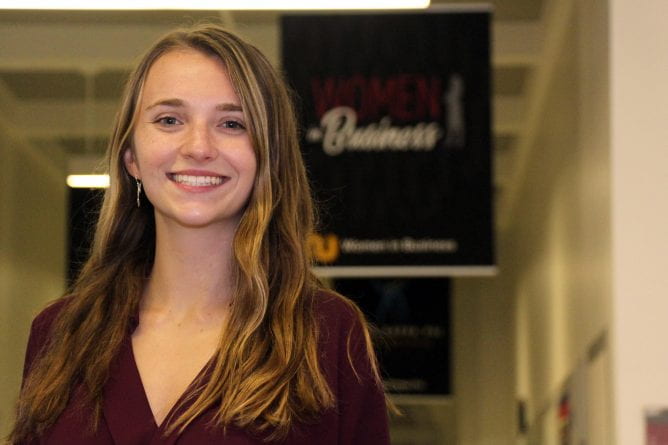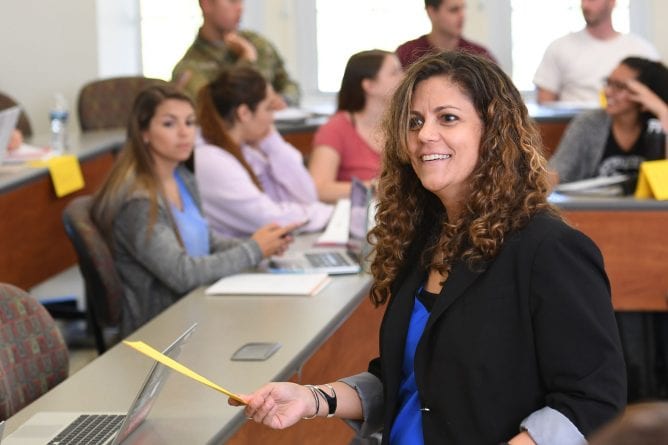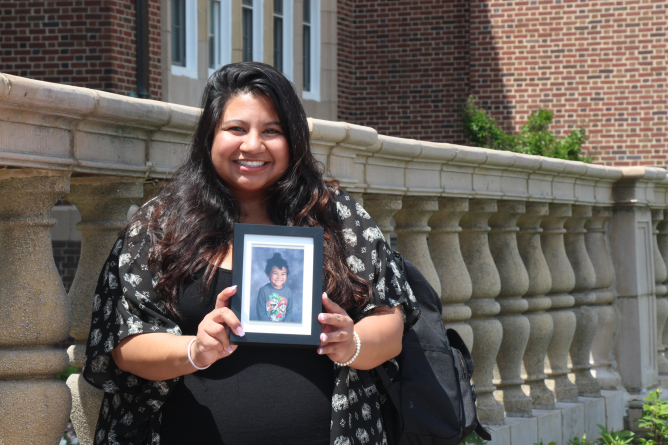April is financial literacy month, a designated nationwide event to raise awareness on the importance of financial education and personal finance. Here, at Towson University’s (TU) College of Business and Economics (CBE), some might take that for granted. Afterall, it’s only natural that those immersed in financial studies or instruction become so comfortable in their own understanding, that they forget how these skills benefit them in their personal and professional lives. Unfortunately, too many people outside of this community lack exposure to finance terminology and application, despite widespread relevance in the real world. This leaves those at a significant disadvantage; hence, the reason behind Financial Literacy Month. Perhaps then, it is the non-business majors who are taking courses in Towson’s CBE who best remind us of the need for a fundamental understanding of finance, and who offer the greatest potential for spreading this knowledge beyond the walls of Stephens Hall. Two such examples are Halla Ismail and Favour Akinneye.
When Halla and Favour registered for course FIN330, Essentials of Financial Management, “enthusiastic” was not a word that would describe how they felt. FIN330 is an introductory course for non-business majors. It is one of the business management classes required for TU’s Sports Management and Healthcare Management majors. As such, the course is often thought of more as “necessary” than “desirable” amongst the population of its participants, many of whom do not have an interest in finance or math – a relevant component of the class. Halla and Favour were equally apprehensive. The course had a reputation amongst their peers as being difficult, and for Halla, this was her second academic attempt. She had withdrawn from the same course in a prior semester after she saw the results of her first exam.
Both Halla and Favour are Healthcare Management majors slated for a spring 2025 graduation. Each share the same major and were enrolled in the same FIN330 class during the fall of 2024, yet they come from very different backgrounds. Halla was born in Egypt and came to the U.S. in 2015 with her family. Favour is from Bowie, Maryland. Both women started working while in high school as cashiers, Favour at Target and Halla at McDonald’s, but their financial literacy exposure was limited. Prior to college, they had very little involvement in the finances of their families or in their own personal finances.
As a child, Favour overheard some discussions with her family about money and remembers her father discussing the mortgage related to a new home that the family moved to while in middle school. But, prior to taking FIN330, she was not directly involved in many financial decisions. She had only made a few consumer credit choices and honestly didn’t feel comfortable doing so independently, requiring a consult with her older brother.
Halla recalls hearing her grandparents talk about money when she spent the weekends with them as a child. They openly discussed how their actual spending compared with their personal budget. While her parents each managed their own business, Halla didn’t have a lot of personal interaction with the financial affairs. She has however, taken a proactive approach to her education, managing work and academics with determination. After receiving two scholarships from McDonald’s, she now holds a job at a software company to help with tuition and living expenses.
“This is the first course I’ve had in college where I’ve been able to apply the content to real life.” – Favour Akinneye
For both Halla and Favour, FIN330 was their first exposure to many financial concepts, terminology, and skills. It offered an understanding of the time of value of money, investment basics, business formations, capital budgeting and structure, personal financial statements, retirement planning, and insurance considerations. After successfully completing FIN330 last semester, Halla and Favour feel more confident in their financial decisions and abilities. Despite their preconceptions, each really enjoyed the class! Favour liked the intellectual challenge, and Halla liked the math component of the course. Favour stated, “This is the first course I’ve had in college where I’ve been able to apply the content to real life.”
The course content helped Favour to prioritize saving overspending, and as a result, she developed a personal budget for the first time in her life. She enjoyed the class so much, that she chose an internship in a finance related part of the healthcare industry. FIN 330 added clarity and structure to Halla’s understanding, helping her to make more informed financial decisions. She recently opened a Certificate of Deposit, and because of the course, was familiar with the bank’s terminology and calculations.
Halla and Favour not only survived FIN330, but they both now believe that all college students should have to take some version of the course, even if it isn’t as in-depth. As Favour explained, “The debt rate has skyrocketed”, referring to the number of people using credit for purchases resulting in large personal debt. Favour and Halla both believe the course should be offered to college freshman (maybe in the first semester) before they start accepting the numerous credit card applications that are frequently given out to freshman students.
Halla and Favour exemplify how financial literacy can enhance independence by giving one the knowledge and ability to confidently execute a financial plan towards achieving personal and financial goals. They, as well as all who fill the classrooms of Stephens Hall can serve as ambassadors to spread this message beyond the brick walls this month and throughout the calendar year.
By Suzanne R. DeMallie, Lecturer in the Department of Finance






